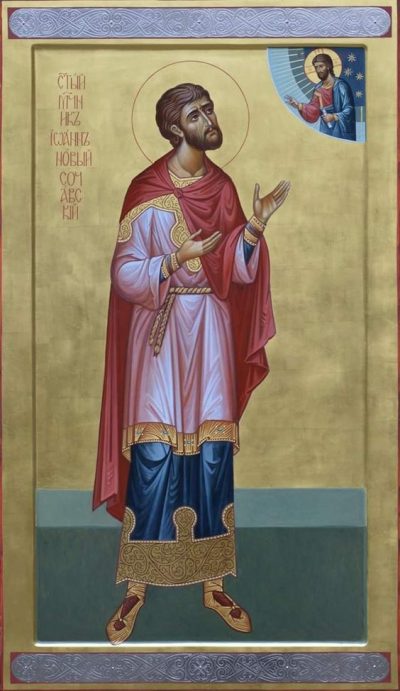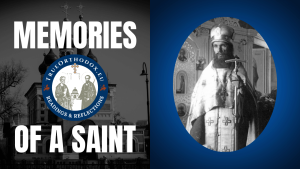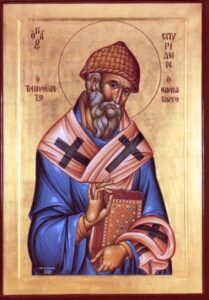The Holy Martyr John the New, of Suceava -Commemorated on June 2

The Holy Great-martyr John the New, of Suceava, lived in the XIV century in the city of Trebizond. By occupation, he was a trading merchant, pious and firm in his Orthodoxy, and generous to the poor.
One time in accord with his trading activities he happened to be sailing on a ship. The captain of the ship was not Orthodox. Having entered into a discussion about the faith with Saint John, he was humiliated and held a bad grudge against the saint. During the time of the ship’s stay at Belgrade by the Bosphorus, the captain went to the city governor, – a fire-worshipper by faith, and suggested that on his ship was a studious man, desiring to also become a fire-worshipper.
The city governor with esteem invited Saint John to join himself to the fire-worshippers, blaspheming his faith in Christ.
The saint prayed secretly, calling on the help of the One Who said: “When however they lead forth to hand you over, be not concerned aforetime what ye shalt say, and ponder not; but what will be given you in that hour, speak ye that, since it be not ye that speaketh, but rather the Holy Spirit” (Mk. 13: 11). And the Lord gave him the courage and understanding to repudiate all the claims of the impious and to firmly confess himself a Christian. After this, the saint was so fiercely beaten with canes that all his body was lacerated, and the flesh beneathe the blows came asunder in pieces. The holy martyr prayed, thanking God, for being found worthy to shed his blood for Him to wash away his sins. Afterward they put him in chains and dragged him away to prison. In the morning the city-governor gave orders to again bring forth the saint. The martyr came before him with a bright and cheerful face. To the repeated suggestion to recant from Christ, the intrepid martyr refused with his former firmness, denouncing the governor as a tool of satan. Then they beat him again with canes, such that all his insides were laid bare. The gathering crowd could not bear this horrible spectacle and they began to shout angrily, denouncing the governor, for so inhumanly tormenting a defenseless man. The governor, having the beating stopped, gave orders to tie the great-martyr by the legs to the tail of a wild horse to drag him through the streets of the city. Residents of the Hebrew quarter particularly scoffed over the martyr and threw stones at him; finally, someone grabbed a sword and overtaking the dragged saint, cut off his head.
The body of the great-martyr with his cut-off head lay there until evening, and none of the Christians dared to take him. By night was seen over him a luminous pillar and a multitude of burning lamps; three light-bearing men made a singing of the Psalms and censing over the body of the saint. One of the Jews, thinking that these were Christians come to take up the remains of the martyr, grabbed a bow and wanted to shoot an arrow at them, but held by the invisible power of God, he became rigid. With the onset of morning, the vision vanished, but the archer continued to stand motionless. Having told the gathering inhabitants of the city about the night vision and what was done to him by the command of God, he was freed from his invisible bonds. Having learned about the occurrence, the city governor gave permission to bury the remains of the great-martyr. The body was buried near the local church. This occurred between the years 1330 and 1340.
The captain, who had betrayed Saint John over to torture, repented his deed and decided secretly to convey the relics to his own native country, but the great-martyr having appeared in a dream to the presbyter of the church, prevented this. After 70 years the relics were transferred to Suceava, the capital of the Moldo-Valachian principality, and placed in the cathedral church.
© 1996-2001 by translator Fr. S. Janos.







